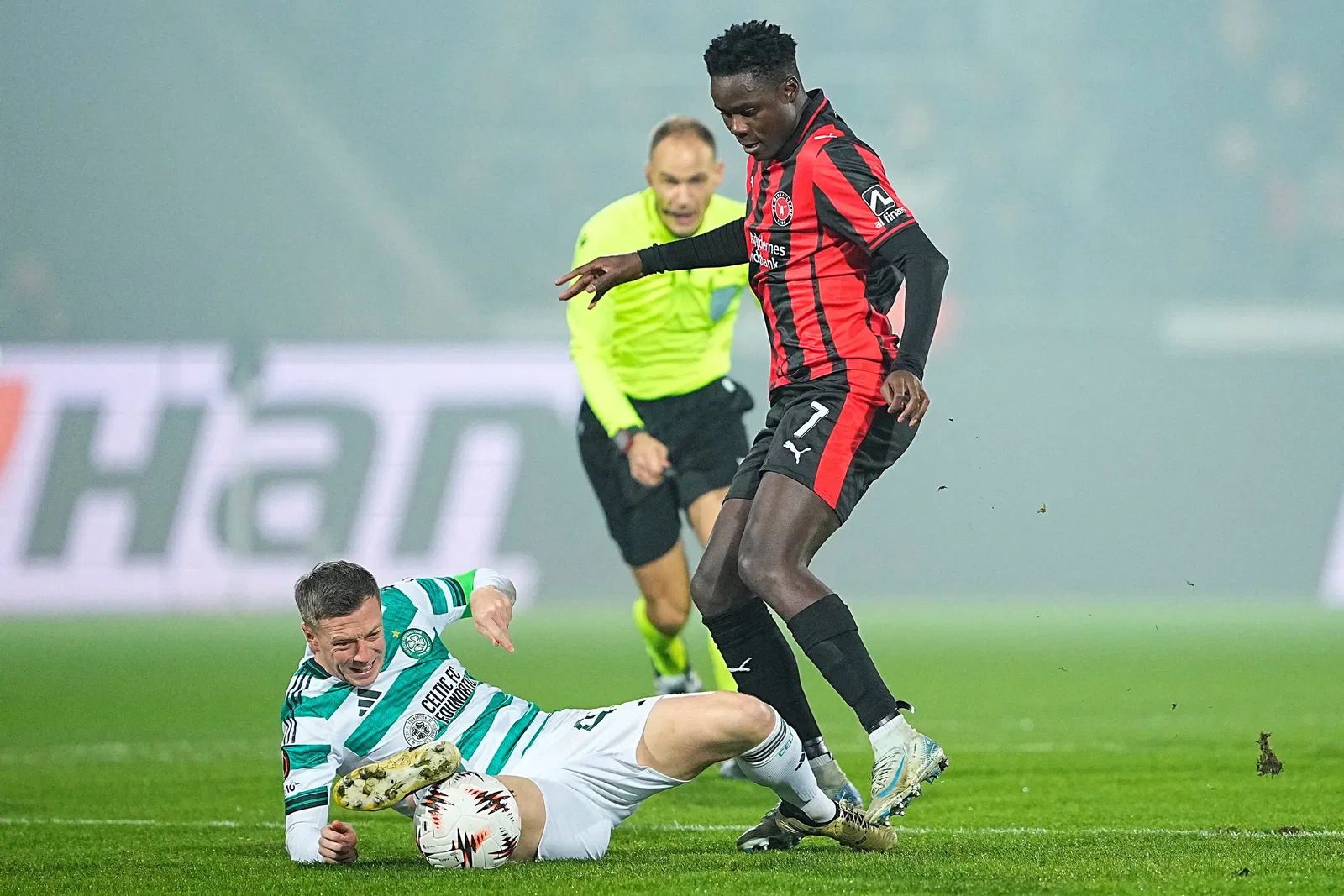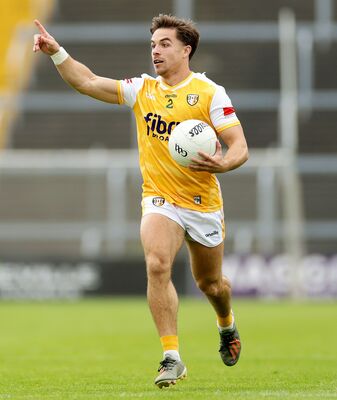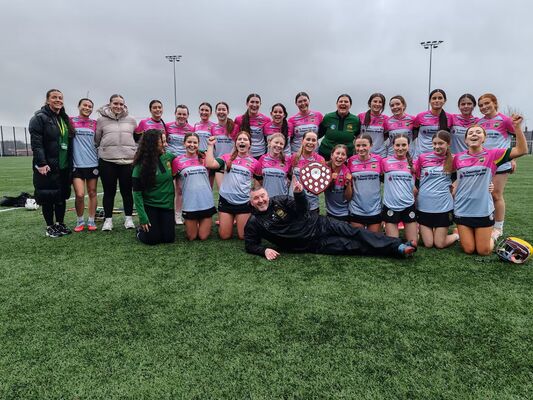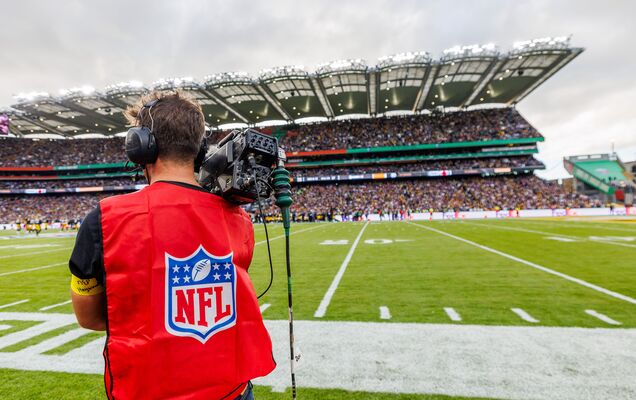SUNDAY'S victory over Kilmarnock saw Celtic clinch a second league victory in a row at Celtic Park after they thumped their opponents by four goals without reply cutting the gap between Hearts and themselves to just seven points with a game in hand.
Interim Celtic boss, Martin O'Neill, stated that he needed to "lie down in a darkened room" after a "whirlwind of a fortnight" which saw the Derry native make the shock return to the dugout at Parkhead, two decades after his last spell.
O'Neill did what was expected and brought the feel-good factor back to Glasgow's East End after two home league victories over Falkirk and Kilmarnock with a hammering of rivals Rangers sandwiched in between.
The former St Malachy's man did his job and not only had the fans back onside, momentarily, but fashioned a deadly weapon up top in the form of Irish striker Johnny Kenny, who had previously only been comparable with a blunt letter opener rather than a sharpened bayonet.
Johnny Kenny's goal scoring form earned him a call-up to Ireland's November squad
Kenny hit a fourth goal since O'Neill and Maloney took over in the dugout to open the scoring against Killie, before Kieran Tierney found his first goal since returning in June with Daizen Maeda and Arne Engels rounding off a great afternoon for the champions on Sunday.
Heading into the International break O'Neill brought the free-flowing attacking football back to Paradise for the first time in months as his side has managed 12 goals in four games, not to mention back-to-back league clean sheets for the first time this season.
Before we get too carried away lauding O'Neill and Maloney-Ball the Celtic Park faithful were brought back down to earth after a hammering on the European mainland.
In the midst of their domestic escapades, Celtic travelled to the Denmark as they faced Europa League table-toppers FC Midtjylland in the fourth fixture of this season's competition. A small 12,500 arena in the North-West of Denmark is where Celtic's board would be given a schooling in how to run a football club to compete in Europe.
To put it mildly Celtic were embarrassed, finding themselves three goals down inside the first half, and doing so in terrifically whimpering fashion only mustering one single shot on goal compared to Midtjylland's 13 efforts inside 45 minutes of football.
This is not your Real Madrids, Bayern Munichs or Inter Milans of the world. This is a tiny regional football club with a history spanning 26 years from their creation in 1999, and yet they've somehow managed to create a vastly successful business model which constitutes domestic and European strategic endeavours which result in success.
Now, far from me to pretend I am fit to serve as someone who knows the European game enough to scoff at Dermott Desmond in his decision-making, after all Celtic have enjoyed two decades of dominance since his majority stake investment in the mid 2000s.
But let's delve into the details once more, drawing up a comparison between the Hoops and the Danish side. The Celtic Board are due some blushing moments after all.
Midtjylland boast less than 13,000 seats at their MCH Arena. Celtic Park holds 60,000.
Kieran Tierney managed his first goal back in hoops against Kilmarnock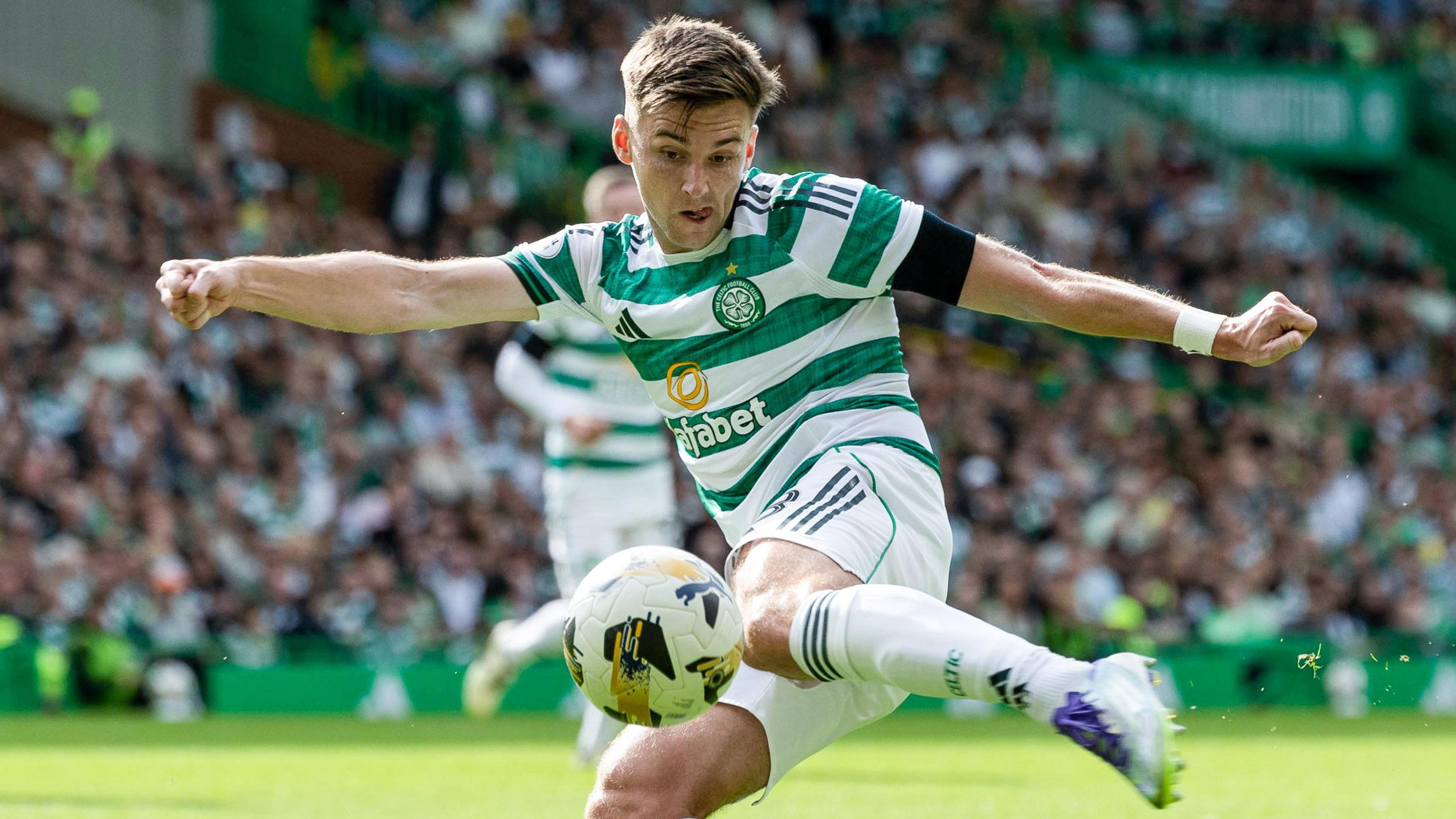
Midtjylland saw their annual turnover for the previous financial year hit roughly £24 million pound, whereas the number crunchers in Paradise stated a £124 million annual turnover for the Hoops. Just five times the figure of Thursday's opponents.
Now, let's get into the real nuts and bolts. In the past two transfer windows Midtjylland have outspent Celtic by £2 million. Which is quite frankly astonishing when you consider which side ran out 3-1 winners last Thursday evening.
And before those folk say "it's not about how much you spend", this season Celtic allowed a squad consisting of two players begging for their exit – Yang and Maeda – and a 35-year-old James Forrest as their only attacking threat heading into the most important game of the season, Kairat Almighty, it must be once again questioned – why is the Celtic board so insistent on this penny pinch strategy?
Compare Celtic's inflated fees last season for Adam Idah, Austin Trusty and Arne Engels – three players that were heavily linked over a month prior to them signing the dotted line and for much less than what was eventually paid. The question remains the same – why wait and gamble only to lose out time and time again?
If he was per chance watching last Thursday's game, and I very much have my reservations that he would do, Desmond would clearly have seen a club which Celtic are five years behind with almost ten times the spending power.
Claus Steinlein is not a name many will know, but he is the man behind the Midtjylland rise to stardom. The regional club side won their fourth Danish title in 2023/24 and have adapted a transfer model which blends experience with young projects who are proven in their position.
Steinlein was famous for coming up with his '10-year strategy' which his side have achieved in half that time through thorough investment and speculating to become a success in Europe and in doing so building their domestic reputation as the biggest challenger to Copenhagen's throne.
This piece will no doubt come off as jealous journalism, and that is exactly what it is. It comes after watching multiple clubs of a similar or even lesser status than Celtic invest properly and become a success on the continent.
Midtjylland have never signed superstars, their only recognisable player would be record signing Phillip Billing who plied his trade in England for many a year before helping Napoli to the scuddetto last year. And just like Celtic's very own Kieran Tierney, he opted to return to his boyhood club based on the vision the club ownership have brought to the small Danish town.
The difference being is that Celtic's vision is based on an outdated ideology of 'who can win more in Scotland' with the only gauge for success being how much more trophies have Celtic got over the 'other lot'.
Claus Steinlein has overseen huge success at FC Midtjylland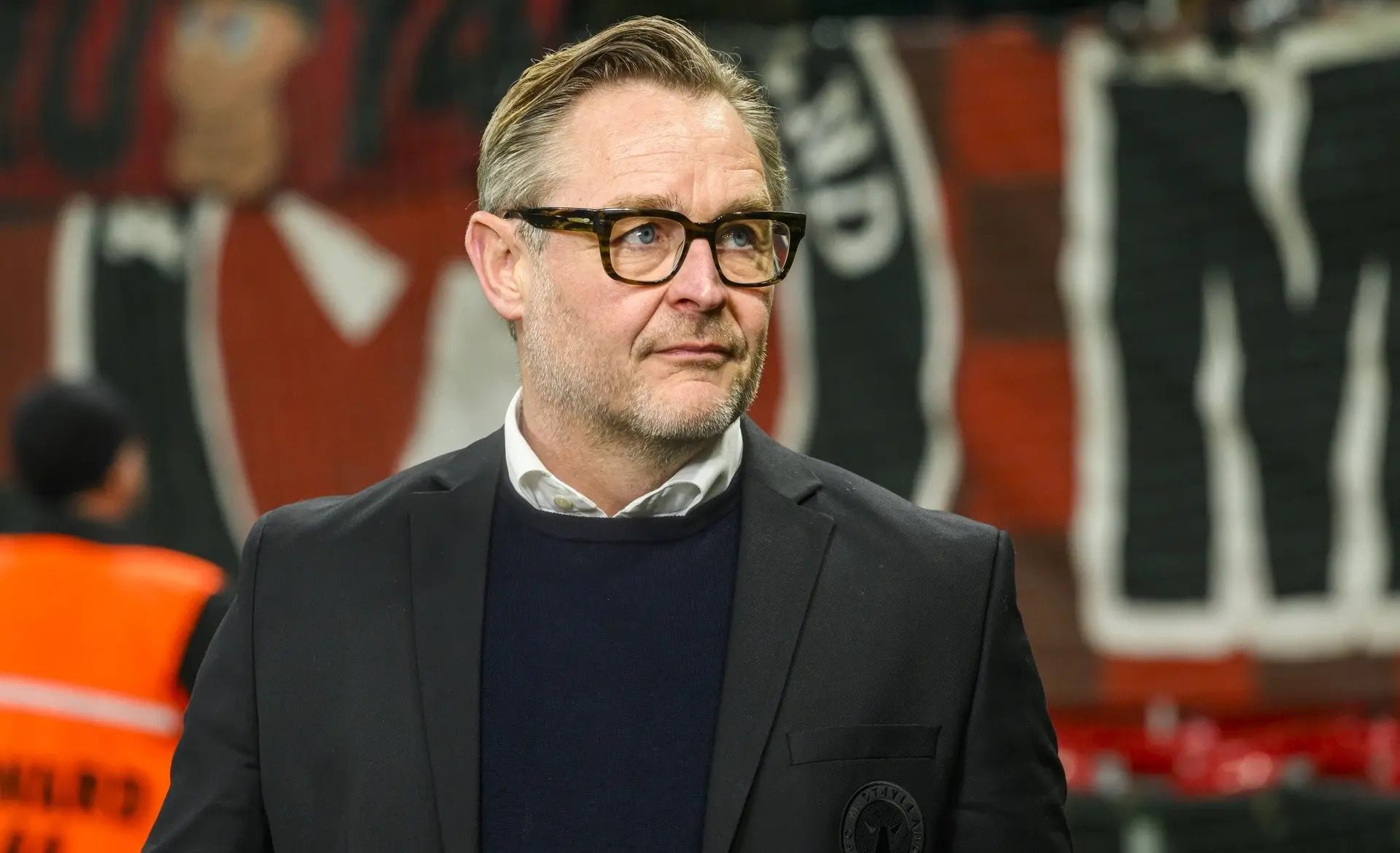
And that is completely fine to run a successful business model based if you want to do so. But don't use European success as a marker for Celtic managers when in fact they have little desire to help them succeed in that area.
A new manager on the horizon gives the opportunity for fresh ideas, a modernised strategy, a new dawn, if you will. But should they fail to invest properly and another £20 million is spent on more projects, then before you know it that bundle of cash stockpiled in a saving's account paying £12 million per year in Corporation Tax, will soon be non-existent.
European success is the only step forward for Celtic, the financial chasm it creates between Celtic and a Dundee United is frightening, and to keep themselves one step ahead of their nearest and dearest the time is now to speculate and finally bring Celtic Football Club in from the dark ages.

